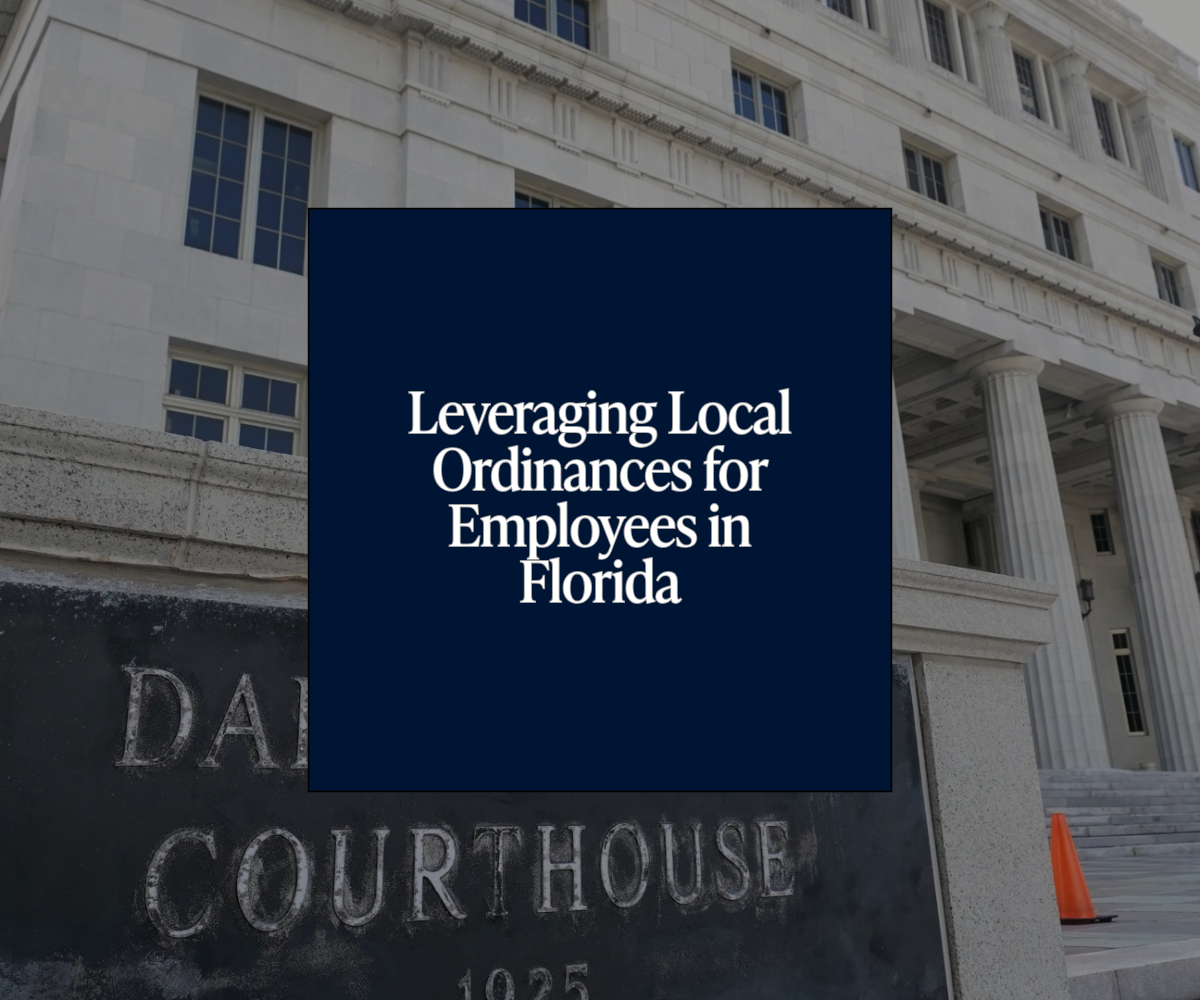When Florida employees consider bringing claims for workplace discrimination or retaliation, they typically look to well-known federal laws such as Title VII of the Civil Rights Act or its state law equivalent, the Florida Civil Rights Act (FCRA). However, many employees overlook valuable local ordinances that may offer broader protections than either federal or state law. For those working in specific counties or municipalities, these ordinances can provide expanded rights and remedies that are unavailable under Title VII or the FCRA.
Understanding the Miami-Dade County Human Rights Ordinance (MDHRO)
One of the most comprehensive local ordinances in Florida is the Miami-Dade County Human Rights Ordinance (MDHRO), which is enforced by the Miami-Dade Commission on Human Rights. The MDHRO provides protections that go beyond what is covered by Title VII and the FCRA. It safeguards employees against discrimination on the basis of ancestry, familial status, gender identity, gender expression, sexual orientation, and domestic violence status—categories not explicitly protected under state or federal law.
The MDHRO also has a lower threshold for employer coverage. While Title VII applies only to employers with 15 or more employees and the FCRA covers employers with 15 or more employees, the MDHRO applies to any employer with four or more employees in Miami-Dade County. This lower employee threshold significantly expands the number of businesses subject to anti-discrimination rules, giving more employees the ability to seek protection under the ordinance.
Advantages of the MDHRO: No Cap on Damages
One of the most powerful aspects of the MDHRO is that it does not place a cap on damages that employees can recover when they successfully prove discrimination, harassment, or retaliation claims. Both Title VII and the FCRA impose limits on the amount of compensatory and punitive damages that employees can recover, depending on the size of the employer. In contrast, under the MDHRO, there is no set limit, meaning that employees may be able to secure higher damages awards, particularly in cases of severe misconduct or egregious behavior.
Not All Local Ordinances Are Equal: The Example of Broward County's Human Rights Ordinance
While Miami-Dade County offers expansive protections, not all local ordinances in Florida provide the same level of protection or enforcement. For example, Broward County’s Human Rights Ordinance offers protections against workplace discrimination but differs significantly from the MDHRO in how claims are handled. Under Broward County’s ordinance, employees cannot file lawsuits against their employers in court. Instead, they must go through an administrative process run by the county. This means employees might be limited in their ability to recover damages or obtain a trial, leaving them better off pursuing claims under Title VII or the FCRA.
How Local Ordinances Can Help Employees Working for Smaller Employers
Local ordinances are particularly beneficial for employees who work for smaller companies that may not be covered under federal or state law. For example, employees in Miami-Dade County who work for businesses with fewer than 15 employees—which would not be subject to Title VII or the FCRA—can still file claims for discrimination or retaliation under the MDHRO. This is a critical advantage for those working for small businesses that might otherwise escape liability under broader laws.
Additionally, employees seeking protection based on categories such as gender identity or sexual orientation, which are not explicitly covered by federal or state law, may find local ordinances like the MDHRO offer more robust protection.
Accessing Local Anti-Discrimination Resources in Florida
If you’re an employee in Florida looking to explore additional protections, it’s essential to familiarize yourself with the local ordinances that may apply to your situation. Many cities and counties across Florida have anti-discrimination ordinances in place, though their scope and enforcement mechanisms can vary. For a list of anti-discrimination ordinances in the state, Equality Florida has put together a helpful list you can access here.
Conclusion: Protecting Your Rights with Local Ordinances
Local ordinances like the Miami-Dade County Human Rights Ordinance offer significant benefits for Florida employees, particularly those who work for smaller companies or seek protections beyond what Title VII and the FCRA provide. These ordinances can offer broader protections, lower thresholds for employer coverage, and the potential for higher damages, making them an invaluable tool for employees seeking to fight workplace discrimination, harassment, or retaliation.
If you’re considering pursuing a discrimination or retaliation claim or want to learn more about how local ordinances in Florida might protect your rights, I invite you to contact me today for a free case consultation to discuss your situation and explore the legal options available to you.
Request a Free Case Consultation
Employment Law Guidance in for Employees in Florida and Minnesota
Submit Your Case
